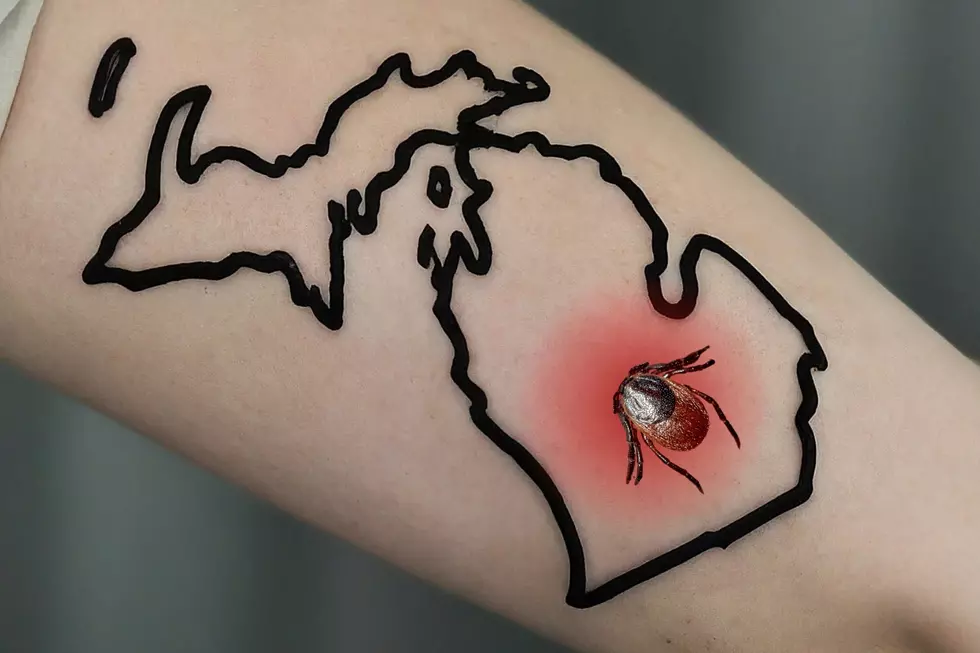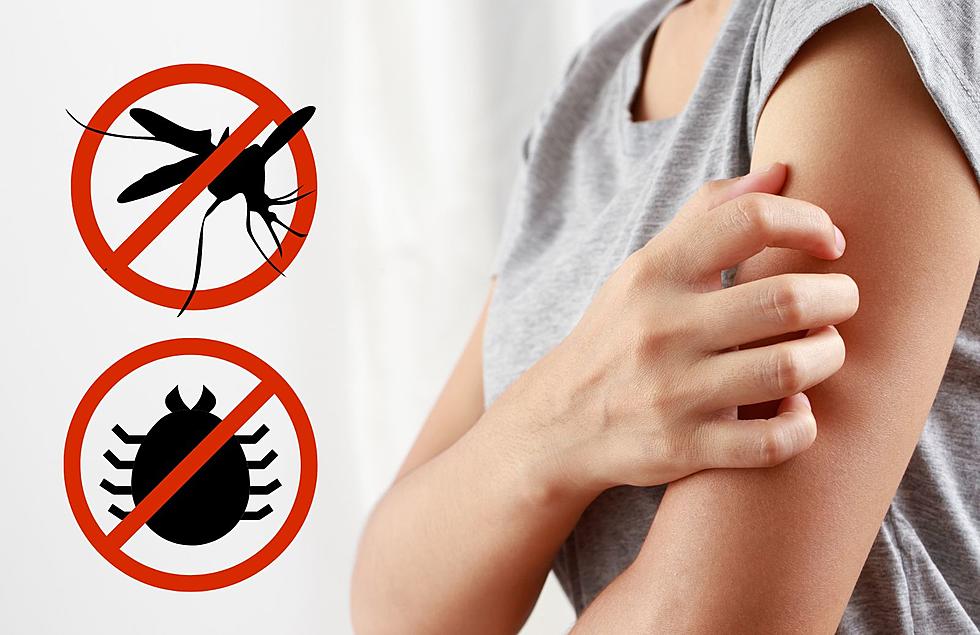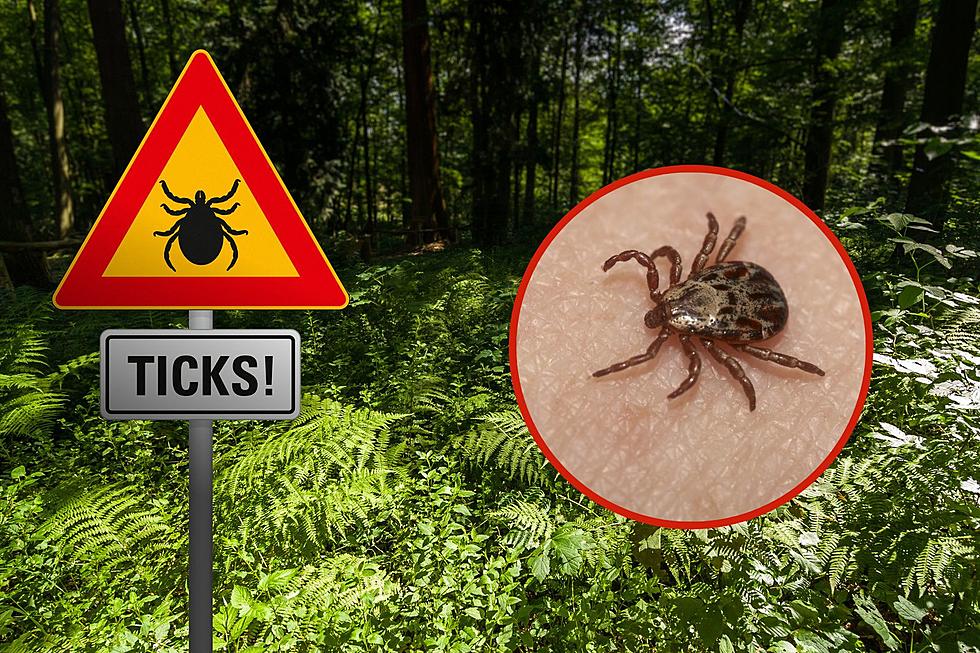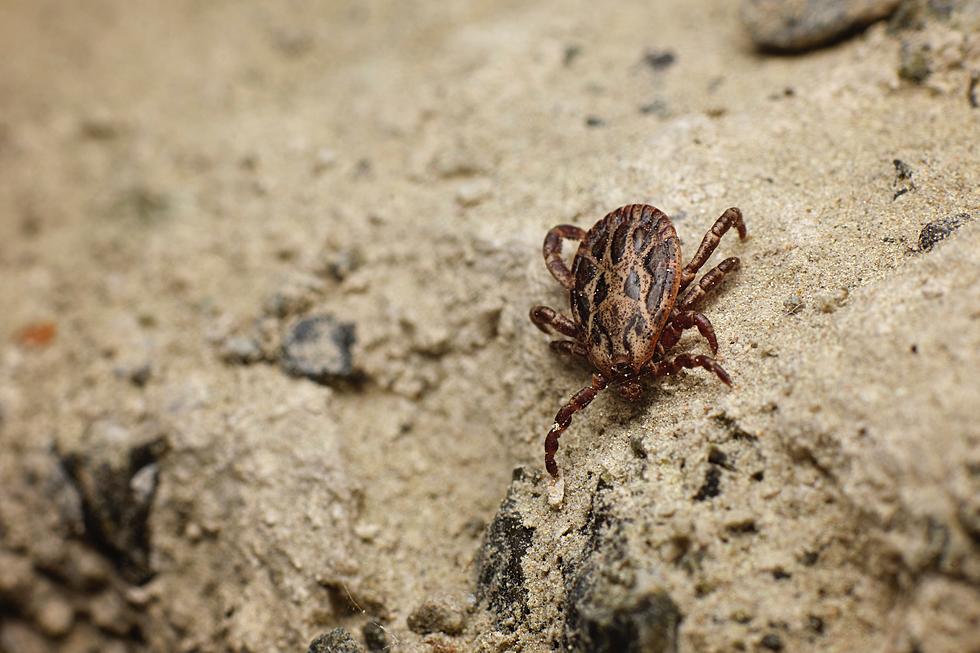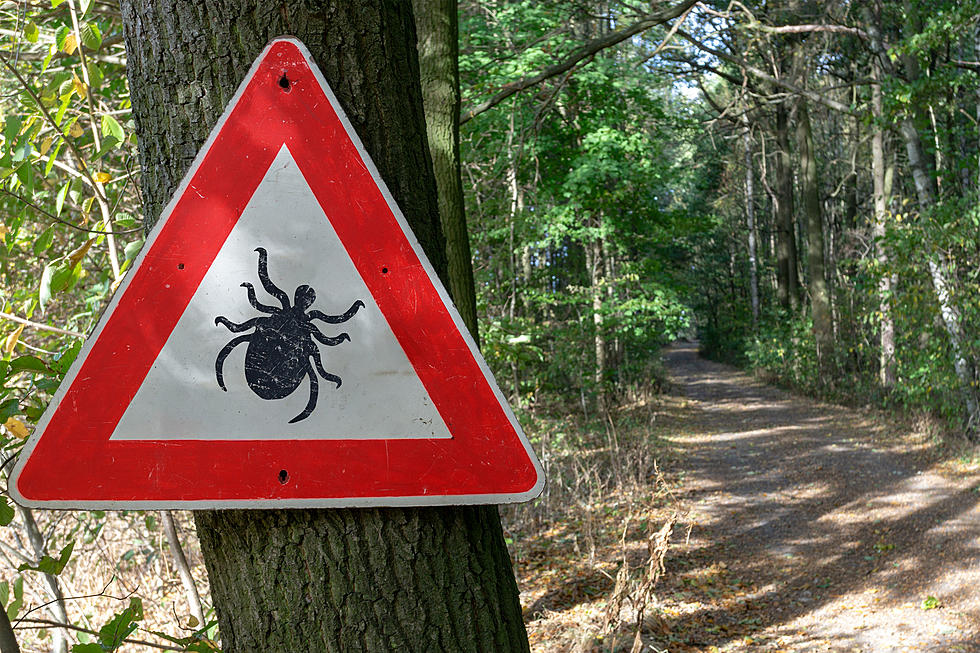
This Michigan Tick Could Cause a Red Meat Allergy
We know that ticks are nothing new to Michigan. However, last week we talked about how there's now a tick overload.
Jean Tsao, associate professor in Fisheries and Wildlife and Large Animal Critical Sciences at MSU told MLive that it's mainly because of our mild winters as it allows for a longer breeding period.
Most people are aware that some ticks carry Lyme Disease. But did you know that there's a tick that can potentially cause you to develop an allergy if you're bitten?

The lone star tick
According to MLive, the lone star tick does not transmit Lyme disease but it can cause a food allergy. If you are bitten, you could become allergic to red meat and possibly milk.
Dr. Michael Ledtke of Saginaw has been treating tick-born diseases since 1986 and has seen five patients develop alpha-gal syndrome, a red meat allergy, after being bitten by a lone star tick.
Ledtke tells MLive, that if you are bitten by a lone star tick, they inject alpha-galactose into your blood stream. If a human were to ingest alpha-gal sugar, they would not be affected but because it's injected into the blood stream, it can cause the body to develop an allergy.
You can read the full story on MLive's website.
Tips on how to avoid ticks
Always use repellents that contain DEET and make sure to spray your skin as well as your clothes.
When choosing your clothes, go with something lighter in color so you can easily detect a tick on your clothes and wear a hat for extra protection.
If you're going to be walking trails, stay on the path and avoid bushes and grass.
There are preventatives you can use to protect your pet from ticks. Consult your veterinarian on what product is best for your pet.
For more information on how to protect you and your loved ones from ticks, click here.
How to remove a tick
If you find a tick on you or your pet I would recommend contacting a professional so you know the entire tick has been removed as they can embed themselves.
If you decide to try to remove a tick yourself, here are some tips from WebMD.
UP NEXT: 7 Things To Know About Stink Bugs
Michigan's Deadliest Animals & Critters
More From 100.7 WITL
